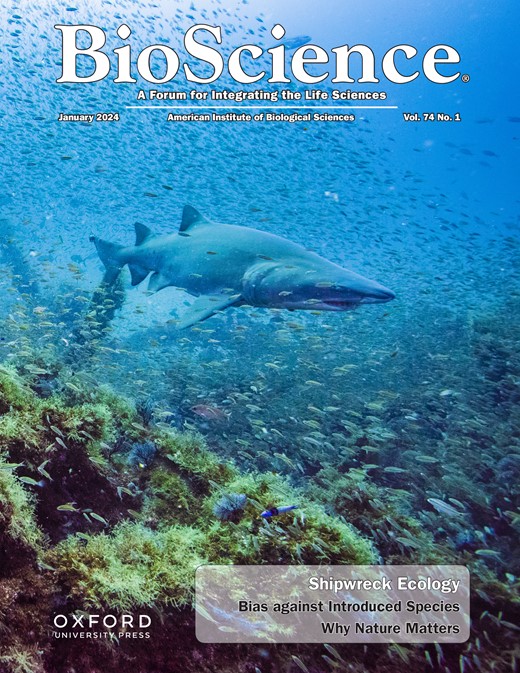Are nursery approaches maturing in their application to US fisheries management?
IF 7.6
1区 生物学
Q1 BIOLOGY
引用次数: 0
Abstract
There have been significant conceptual advances for identifying nursery habitats within coastal systems used by juvenile fishes and crustaceans. The approaches for delineating nursery areas include measures of juvenile abundance, growth, or survival; habitat characteristics; seascape connectivity; population fitness; and contribution to adult biomass (per unit area or total). We used all US coastal states as replicate trials to evaluate the integration of nursery concepts into fisheries management and found an obvious disconnect between expanding academic interest in nursery roles and management application. Among the few states that afford a subset of coastal environments with nursery status, easily obtained metrics (e.g., juvenile density or presence/absence of biogenic structure) are used, and it remains unclear what role nursery designations have played in promoting sustainable fisheries. Gathering the data necessary to use higher-order nursery approaches and metrics (e.g., connectivity and biomass contribution) to designate nurseries will require significant research investment and greater collaboration between ecologists and fisheries scientists.育苗方法在美国渔业管理中的应用是否日趋成熟?
在确定幼鱼和甲壳类在沿岸系统中的育苗生境方面,概念上取得了重大进展。划定育苗区的方法包括衡量幼鱼的丰度、生长或存活率;生境特征;海景连通性;种群适宜性;对成鱼生物量的贡献(单位面积或总量)。我们利用美国沿海各州作为复制试验,评估将育苗概念纳入渔业管理的情况,发现在育苗作用方面不断扩大的学术兴趣与管理应用之间存在明显脱节。在为数不多的几个州中,它们提供了具有育苗状态的沿海环境子集,并使用了容易获得的指标(如幼鱼密度或生物结构的存在/不存在),但育苗指定在促进可持续渔业方面发挥了什么作用,仍不清楚。收集必要的数据,使用更高阶的育苗方法和指标(如连通性和生物量贡献)来指定育苗场,将需要大量的研究投入以及生态学家和渔业科学家之间更多的合作。
本文章由计算机程序翻译,如有差异,请以英文原文为准。
求助全文
约1分钟内获得全文
求助全文
来源期刊

BioScience
生物-生物学
CiteScore
14.10
自引率
2.00%
发文量
109
审稿时长
3 months
期刊介绍:
BioScience is a monthly journal that has been in publication since 1964. It provides readers with authoritative and current overviews of biological research. The journal is peer-reviewed and heavily cited, making it a reliable source for researchers, educators, and students. In addition to research articles, BioScience also covers topics such as biology education, public policy, history, and the fundamental principles of the biological sciences. This makes the content accessible to a wide range of readers. The journal includes professionally written feature articles that explore the latest advancements in biology. It also features discussions on professional issues, book reviews, news about the American Institute of Biological Sciences (AIBS), and columns on policy (Washington Watch) and education (Eye on Education).
 求助内容:
求助内容: 应助结果提醒方式:
应助结果提醒方式:


